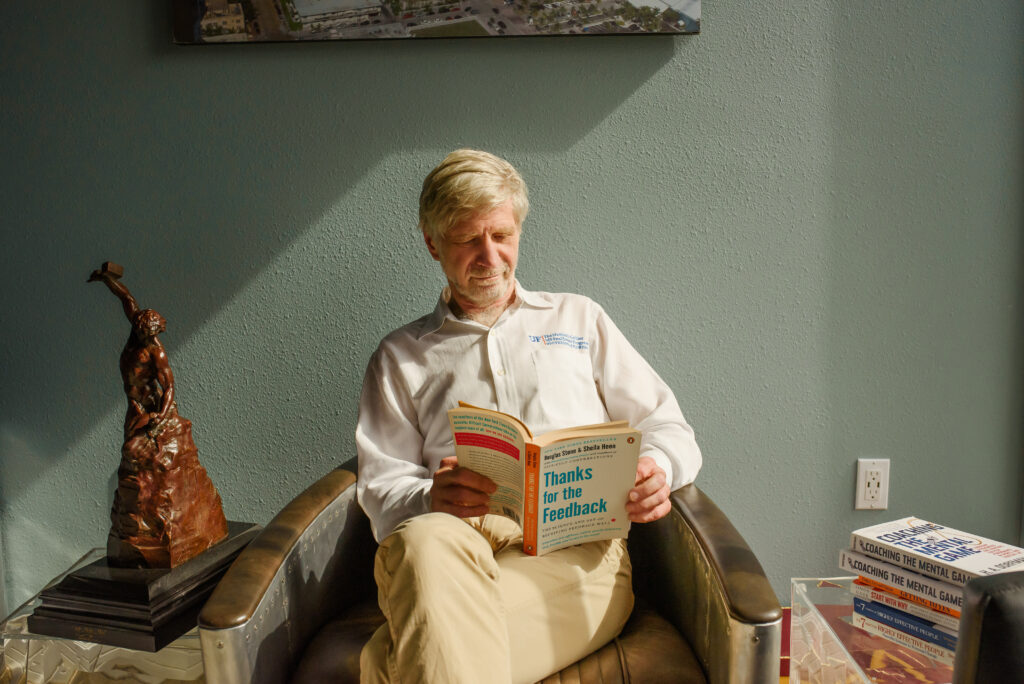 Seated in 1D, Ric Elias had a bird’s eye view on U.S. Airways Flight 1549 from LaGuardia to Charlotte, North Carolina, on January 15, 2009. Cleared from Runway 4 at at 3:24:56 p.m. EST with 150 passengers and 5 crew members, and piloted by 57-year-old Captain Chesley B. “Sully” Sullenberger, the Airbus A320-214 suffered complete loss of engine power due to multiple bird strikes in both engines three minutes into the flight. Subsequently known as the “Miracle on the Hudson,” all souls on board survived the glide over the George Washington Bridge and a landing on the Hudson River.
Seated in 1D, Ric Elias had a bird’s eye view on U.S. Airways Flight 1549 from LaGuardia to Charlotte, North Carolina, on January 15, 2009. Cleared from Runway 4 at at 3:24:56 p.m. EST with 150 passengers and 5 crew members, and piloted by 57-year-old Captain Chesley B. “Sully” Sullenberger, the Airbus A320-214 suffered complete loss of engine power due to multiple bird strikes in both engines three minutes into the flight. Subsequently known as the “Miracle on the Hudson,” all souls on board survived the glide over the George Washington Bridge and a landing on the Hudson River.
So what do you think about when you are about to die? When there is complete silence replacing the normal background hum from the plane engines? When the pilot calmly instructs “brace for impact”? In a short (5 minutes) but powerful TED talk, Elias shared his thoughts from that eventful day. One of the most powerful things he communicated was his regret for the times he wasted on things that didn’t matter with people who did matter. Releasing negative energy, letting his ego get in the way of being happy. Now, “It’s not perfect, but it’s a lot better….It feels great. I no longer try to be right. I choose to be happy.”
Closing quotes:
“When patterns are broken, new worlds emerge.” — Tuli Kupferberg; 1923–2010, American counterculture poet, author, cartoonist, pacifist anarchist, publisher, and co-founder of the band The Fugs
“Life is problems. Living is solving problems.” — Raymond E. Feist; 1945– , from the novel “Silverthorn”
“Human resources are like natural resources; they’re often buried deep. You have to go looking for them, they’re not just lying around on the surface. You have to create the circumstances where they show themselves.” — Sir Kenneth Robinson; 1950–, English author, speaker, and international advisor on education in the arts to government, non-profits, and education




